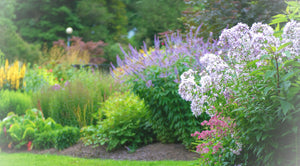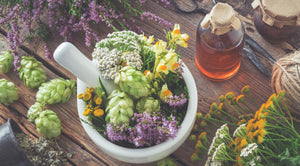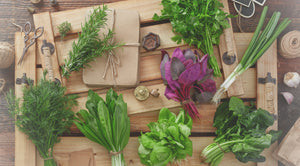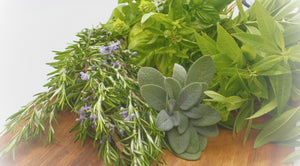Composting has become very popular and there are many recipes for the perfect compost. My yard is about one acre and has many trees. Each fall the city comes around and picks up leaves piled next to the road. Though they do compost these leaves, their process requires fossil fuel and the finished product can contain pollutants like oil residue. Besides that, I wanted to keep the leaves on the property to fertilize and build the soil on my property, feeding the soil that grew them.
Like most homeowners, I have a busy schedule and do not have but so much time for composting. My system starts in the fall when fallen leaves are raked to an out of sight corner of the yard. They are piled in long rows; the top of each pile is flat or slightly concave to trap rainwater. Getting all those dry leaves wet is the most difficult part. When the interior of the pile gets wet, I begin the turning process, which will go on until the leaves are completely composted. Nitrogen must be added to speed the decomposition. I used chicken manure, but fertilizer will work. The turning is done as I feel like doing it; usually time turning the pile is a substitute for a trip to the gym. This work out is very satisfying as there are physical results to admire when done. The composted leaves are used as mulch and a soil amendment when planting. Over the years, the soil in our small vegetable patch has grown several inches higher than the surrounding ground, due to the addition of the compost.
Table scraps, vegetable peelings, etc cannot be added to the leaf pile; they would attract insects and rats. A five gallon bucket w/ lid is kept under the kitchen sink to collect kitchen scraps. When full they are put in a plastic drum kept near the composting area. As these food scraps are added, a shovel full of leaf compost is added and the barrel is rolled to mix the contents. This barrel produces a rich compost we call “black gold”. This is used when planting.
Composting can be as simple as described above or more complicated recipes can be used. The important thing is all of the yard debris is processed and kept where it came from. The sandy soil of our yard is improved and retains moisture; keeping our garden green and lush.
For more help, contact us at: info@thegrowers-exchange.com
Like most homeowners, I have a busy schedule and do not have but so much time for composting. My system starts in the fall when fallen leaves are raked to an out of sight corner of the yard. They are piled in long rows; the top of each pile is flat or slightly concave to trap rainwater. Getting all those dry leaves wet is the most difficult part. When the interior of the pile gets wet, I begin the turning process, which will go on until the leaves are completely composted. Nitrogen must be added to speed the decomposition. I used chicken manure, but fertilizer will work. The turning is done as I feel like doing it; usually time turning the pile is a substitute for a trip to the gym. This work out is very satisfying as there are physical results to admire when done. The composted leaves are used as mulch and a soil amendment when planting. Over the years, the soil in our small vegetable patch has grown several inches higher than the surrounding ground, due to the addition of the compost.
Table scraps, vegetable peelings, etc cannot be added to the leaf pile; they would attract insects and rats. A five gallon bucket w/ lid is kept under the kitchen sink to collect kitchen scraps. When full they are put in a plastic drum kept near the composting area. As these food scraps are added, a shovel full of leaf compost is added and the barrel is rolled to mix the contents. This barrel produces a rich compost we call “black gold”. This is used when planting.
Composting can be as simple as described above or more complicated recipes can be used. The important thing is all of the yard debris is processed and kept where it came from. The sandy soil of our yard is improved and retains moisture; keeping our garden green and lush.
For more help, contact us at: info@thegrowers-exchange.com





